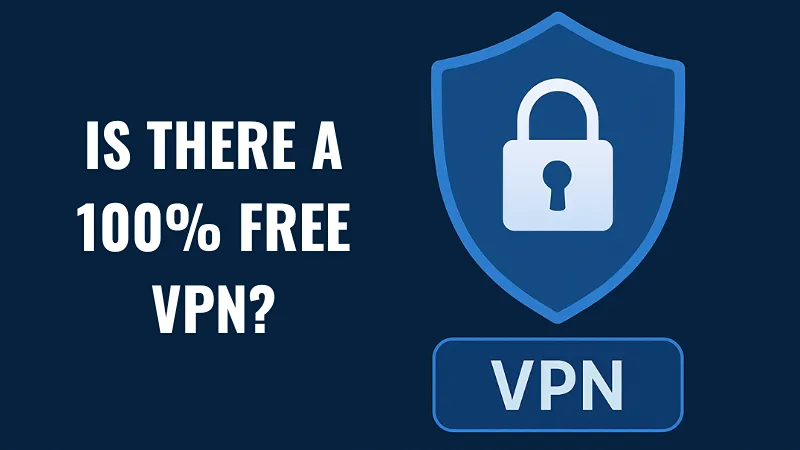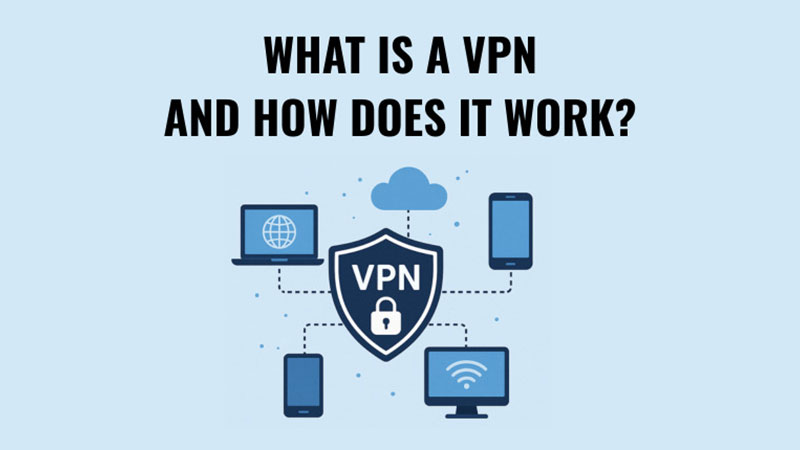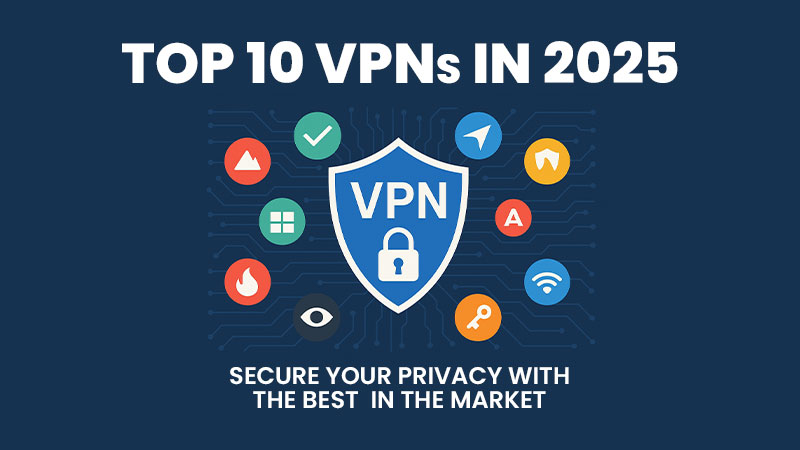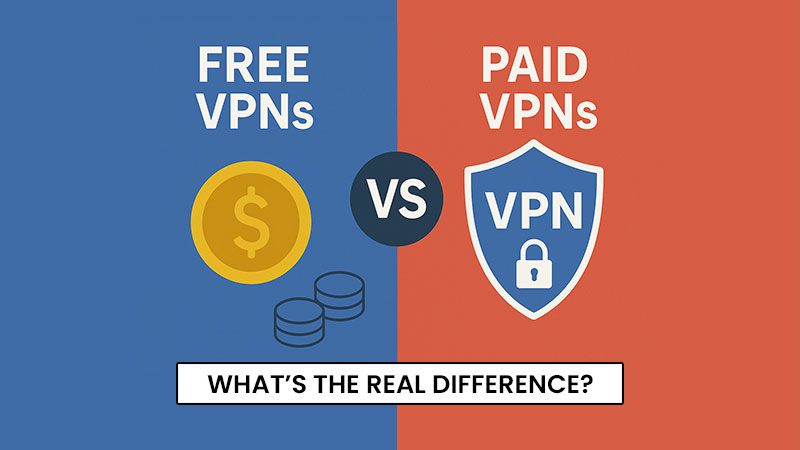The demand for VPNs (Virtual Private Networks) has grown rapidly as people realize how vulnerable their personal data is online. From protecting sensitive information on public Wi-Fi to bypassing geo-restrictions on streaming platforms, VPNs have become a must-have tool in the digital era. But with this demand comes the big question: Is there really a 100% free VPN that gives you everything without paying a single cent?
On the surface, the idea sounds attractive. Who wouldn’t want complete online privacy, security, and freedom at zero cost? Dozens of providers advertise their apps as “free VPNs forever”, luring users who don’t want to pay for premium services. However, the truth is much more complex.
Understanding What a 100% Free VPN Really Means
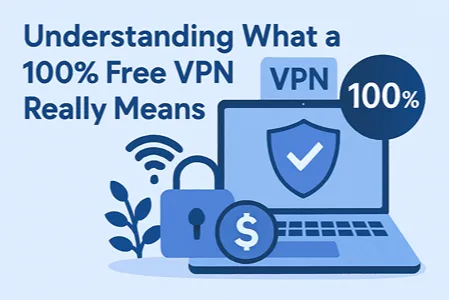
Before diving into lists of providers or risks, we need to define what “100% free VPN” actually means.
When people search for it, they usually expect:
- Unlimited data with no monthly caps
- Full-speed connections for browsing, gaming, or streaming
- Strong encryption and online privacy protections
- Access to servers worldwide without restrictions
- Zero payment, forever
Running a VPN service involves significant operational costs. Providers must:
- Rent and manage secure servers across the globe
- Continuously upgrade encryption standards
- Provide 24/7 customer support
- Handle huge bandwidth costs for millions of users
- Follow data protection regulations in multiple countries
All of this costs money. So when a company offers a completely free VPN, one question arises: How are they covering these expenses?
The answer usually falls into three categories:
- Freemium Model – You get a limited version for free, but must upgrade for unlimited use.
- Advertising-Supported Model – Your browsing experience comes with ads.
- Data Monetization Model – The most dangerous one, where free VPNs track and sell user data to advertisers.
So yes, there are “free VPNs,” but the trade-off is either limited functionality or compromised privacy.
Advantages of Using a Free VPN
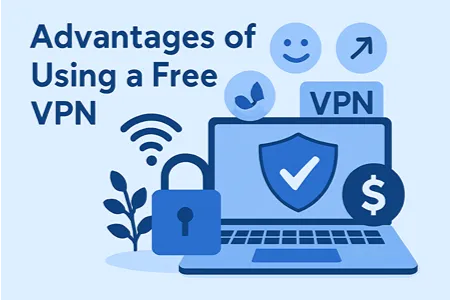
Even with limitations, free VPNs can be valuable in certain scenarios. Let’s explore the benefits of using free VPN services so you can decide if they’re worth your time.
Cost-Free Entry to Privacy Tools
The most obvious benefit is that you don’t pay. Free VPNs allow beginners to try out VPN technology without any investment. For someone unfamiliar with how VPNs work, they’re a great way to understand features like IP masking, data encryption, and bypassing restrictions.
Useful for Casual Browsing
If you only use the internet for light tasks such as checking emails, reading news, or browsing social media, a free VPN may be sufficient. You won’t notice much difference in speed unless you try heavy streaming or downloads.
Protection on Public Wi-Fi
Public networks in cafes, airports, and hotels are favorite hunting grounds for hackers. Even a basic free VPN adds an encryption layer, reducing risks of stolen passwords, intercepted data, or identity theft.
Temporary Access to Blocked Sites
If you just want to quickly open a restricted site in your region, a free VPN works. While it may not unlock Netflix or Disney+ libraries, it’s good for smaller restrictions like blocked blogs, news sites, or apps.
No Commitment
Unlike premium VPNs, which require subscriptions, cards, or contracts, free VPNs usually let you start immediately. This makes them attractive for people who don’t want long-term obligations.
In short, free VPNs are practical for beginners, casual users, or people with very light security needs.
Disadvantages and Risks of Free VPNs
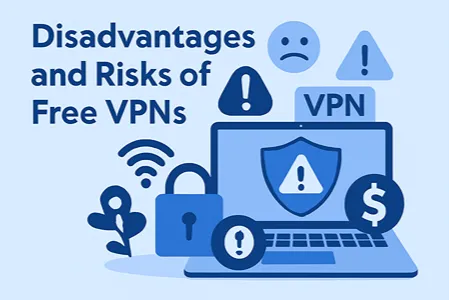
Now comes the downside – and it’s a big one. While free VPNs may look appealing, they often introduce risks that can undermine your security and privacy instead of protecting them.
Strict Data Caps
Most free VPNs impose tight monthly or daily data limits. TunnelBear provides a monthly data limit of 500MB, Hotspot Shield refreshes 500MB of usage daily, while Windscribe allows up to 10GB each month. Once you cross the limit, you either lose access or need to upgrade.
Slow Speeds and Lag
Free VPN servers are usually overcrowded. That means buffering, lag, and poor performance. Streaming, gaming, or torrenting becomes nearly impossible.
Limited Server Choices
High-quality VPN services give users access to thousands of servers spread over 60+ countries. Free VPNs restrict you to a handful of servers, which can affect speed and limit your ability to bypass geo-restrictions.
Weak or Fake Security
Many free VPN services do not implement high-level encryption standards such as AES-256. Some use outdated protocols, and a few fake VPNs don’t encrypt data at all. Instead of hiding your information, they expose it further.
Privacy Violations
The biggest red flag: many free VPNs log your browsing activity. Some even sell data to advertisers or track you across websites. Reliable VPN providers offer broad server coverage, spanning more than 60 countries worldwide.
Malware Threats
Research shows that nearly 40% of free VPN apps available in app stores contain malware or spyware. Instead of protecting you, they infect your device.
Simply put, the risks often outweigh the benefits. If safeguarding your privacy is the priority, relying on free VPNs might backfire, as some may compromise the very security they claim to protect.
Best 100% Free VPNs in 2025
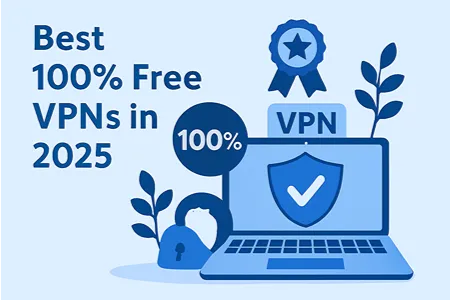
If you’re determined to try a free VPN, stick to reputable providers that are transparent about their limits and don’t compromise security. Here are the top free VPNs available in 2025.
ProtonVPN Free
- Unlimited data (rare for a free VPN).
- Strong no-logs policy.
- Servers in the U.S., Netherlands, and Japan.
- Slower speeds during peak hours.
- Best for privacy-focused users who don’t mind speed trade-offs.
Windscribe Free
- 10GB monthly data allowance.
- Servers in over 10 countries.
- Ad blocker and firewall included.
- Reliable speeds for browsing.
- Best for casual browsing with occasional streaming.
TunnelBear Free
- 500MB monthly data (bonus data via promotions).
- Friendly design, easy for beginners.
- Same security features as the paid version.
- Best for those who just want to test VPNs.
Atlas VPN Free
- 5GB monthly data.
- Decent speeds for light use.
- Solid security protocols.
- Best for mobile users.
Hotspot Shield Free
- 500MB daily limit.
- Supported by ads.
- Secure basic browsing.
- Best for one-time emergency use.
These are the most trusted free VPNs in 2025. They come with restrictions, but they’re safer than unknown or shady alternatives.
Are Free VPNs Worth It Compared to Paid VPNs?
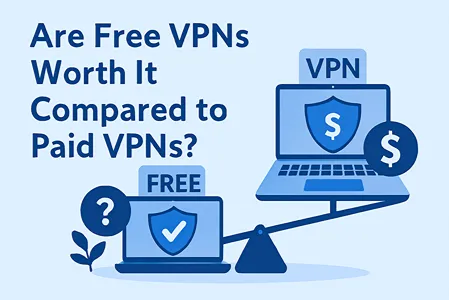
This is the ultimate question. Should you rely on a free VPN or spend money on a premium one? Let’s compare.
Security
- Free VPNs: Limited encryption, possible logging.
- Paid VPNs: AES-256 encryption, strict no-logs policies, kill switches, and DNS leak protection.
Speed & Data
- Free VPNs: Data caps (500MB–10GB), overcrowded servers.
- Paid VPNs: Unlimited data, fast servers optimized for streaming and gaming.
Streaming & Torrenting
- Free VPNs: Rarely unblock Netflix, Hulu, or Prime.
- Paid VPNs: Work with major streaming platforms and support P2P file sharing.
Server Access
- Free VPNs: 3–10 countries at best.
- Paid VPNs: Thousands of servers in 60+ countries.
Customer Support
- Free VPNs: Minimal or no support.
- Paid VPNs: 24/7 live chat, email, and guides.

